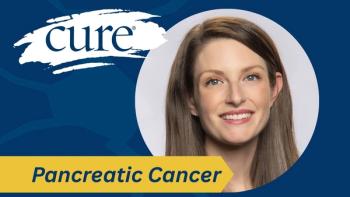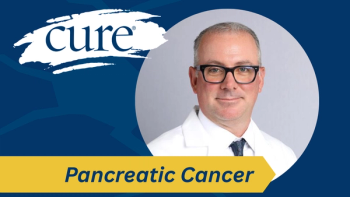
A Promising New Treatment Offers Hope in the Fight Against Pancreatic Cancer
Exciting new treatment options for patients with pancreatic cancer are on the rise, thanks to organizations such as the Lustgarten Foundation.
At a time when the public is encouraged by news that the number of Americans dying of cancer is decreasing, the number of people diagnosed with, and dying from, pancreatic cancer is actually on the rise. The estimated number of new cases for 2016 exceeds 53,000, and only 8 percent of patients survive five years, as the signs and symptoms can go unnoticed until the cancer is in its advanced stage.
The Lustgarten Foundation — the nation’s largest private funder of pancreatic cancer research – is committed to not only changing these statistics, but also reinventing the treatment landscape. In fact, with only 2 percent of National Cancer Institute funding directed at pancreatic cancer, the research supported by the Foundation, and other organizations dedicated to fighting pancreatic cancer, plays an increasingly critical role in understanding the disease and in promoting discoveries that could lead to new therapies.
One promising development is the research underway to determine if patients’ tumors have vitamin D receptors, which would make them eligible for treatment with a synthetic form of vitamin D. Different from the vitamin D one would take in an over-the-counter vitamin form, this form is a specialized synthetic type called paricalcitol that needs to be administered by a physician. Paricalcitol targets and shuts down the “stromal cells” that grow and surround the tumor, making the tumor easier to reach and more susceptible to treatment.
This research is co-led by Dr. Brian Wolpin from the Dana-Farber Cancer Institute, and Dr. Eileen O’Reilly from the Memorial Sloan Kettering Cancer Center, who are performing standard biopsies on pancreatic cancer tumors. The Lustgarten Foundation’s Distinguished Scholar, Dr. Ronald Evans from the Salk Institute for Biological Studies, then analyzes the tissue biopsies to establish a biomarker profile for patients whose tumors express the vitamin D receptor. The biomarker profile will eliminate the current “trial and error” approach to determining if this treatment will be effective.
Patients with pancreatic cancer typically have a limited window of time for experimenting with different treatments, since most individuals are diagnosed when the cancer is already in the late stages. That is why it is critical to study the tumor and particular treatment options in advance. Oncologists can closely examine the makeup of an individual tumor and from there determine which treatments are most likely to work best for each patient. This new research using synthetic vitamin D brings the concept of personalized medicine one step closer to becoming a reality.
The potential of synthetic vitamin D extends beyond Dr. Evans’ noteworthy work to other promising research, including an upcoming clinical trial sponsored by Stand Up To Cancer and The Lustgarten Foundation to explore the effects of synthetic vitamin D treatment on the immune cells that enter the pancreatic cancer tumor.
The foundation encourages pancreatic cancer patients to speak with their physicians about this promising synthetic vitamin D research and the possibility of undergoing testing to find out if their tumors have the vitamin D receptor. If patients do have the receptor, they should discuss with their physician the potential benefits of adding synthetic vitamin D the treatment regimen.
The pancreatic cancer research community, with more than 1,000 leading researchers who are dedicated to studying this disease, is on the cusp of discovering effective, long-term treatments and early detection techniques. Only through focused, continued commitment to research into synthetic vitamin D and other innovative treatments can we hope to offer new options for pancreatic cancer patients and make significant progress toward a cure.
On behalf of patients and their loved ones, we won’t quit until we find one.




